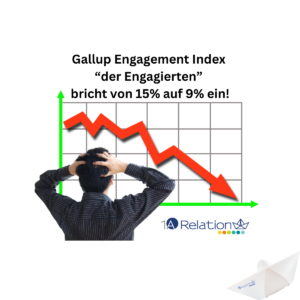Artificial intelligence (AI) – the buzzword of the 21st century. AI algorithms are used to create language-based systems, make data-based decisions for production, for example, and imitate creativity. AI also enables autonomous driving, the detection of diseases, unlocking smartphones through facial recognition and predictive maintenance. AI has long since become an integral part of our lives.
But what exactly is behind it and how can AI also be used and utilized in CRM?
Meaning and sub-areas of artificial intelligence (AI)
Artificial intelligence is the ability of a machine to imitate human abilities such as logical thinking, planning, learning and creativity. A distinction is made between many sub-areas of AI, including
Machine learning: Machine learning improves the performance of machines on the basis of mathematical algorithms.
Example: Recommendation systems in online retail
Deep learning: machines analyze big data and identify patterns.
Example: Modern translation tool DeepL or facial recognition
Artificial neural networks: Artificial neural networks are based on the human body. New knowledge can be linked and learned independently.
Example: speech recognition, autonomous driving
Natural Language Processing (NLP): NLP is the natural communication between humans and machines.
Example: chatbots, Siri, car assistants
Areas of application for AI in CRM processes
The use of AI in CRM should never take place for the sake of technology, but the real driver must always be a problem that can be solved with the help of AI.
Nowadays, there are many use cases in which AI is used in CRM and CRM-related processes. The aim is always to use data to provide CRM users with optimal support in their daily work, increase their efficiency, ensure better processes and enable well-founded decisions to be made.
Assignment of sales employees to prospects and new customers: Sales employees face a multitude of tasks in their day-to-day business and look after several customers at the same time. With the help of AI, prospects and new customers can now be assigned to exactly the right sales employee based on previous contact points, previous closing rates, experience and current workload to ultimately maximize the probability of closing a deal and customer satisfaction.
Predicting customer lifetime value: AI can also be used to accurately predict the customer’s value to the company. Historical customer data is used to forecast sales expectations and sales potential. This allows customers to be compared with each other and the right measures to be derived in Marketing & Sales.
Predicting the probability of churn: Customer churn is extremely expensive for companies. In many cases, a customer’s dissatisfaction is noticed far too late – and in the worst case it is already too late. It is better to use machine learning to detect customer churn at an early stage so that proactive countermeasures can be taken.
Artificial intelligence, CRM and SAP ERP – how do they fit together?
For companies that use SAP, the database is SAP ECC or S/4HANA – it contains a wealth of information from a wide range of business areas. This huge database can be used as the basis for AI. The CRM serves as the “front end”, which in the best case is based directly on the SAP ERP so that no additional interfaces are required and no unnecessary sources of error arise. In CRM as the work interface for marketing, sales and service, AI offers important added value through predictions and forecasts that support employees in their daily work.
Although the use of AI in CRM is not new, companies that use it are already gaining competitive advantages that should not be underestimated. Thanks to AI, sales staff understand their customers better, can spend their time on the right tasks and act more successfully.
About the author:

Head of Modern Workplace
As Head of Modern Workplace at itmX GmbH, Robin Hartmann is responsible for optimizing business processes and helping to position the company for future challenges. As a creative mind, he is primarily driven by innovation topics. Thanks to his proximity to customers, he experiences real business requirements at first hand and enjoys driving them forward together.












